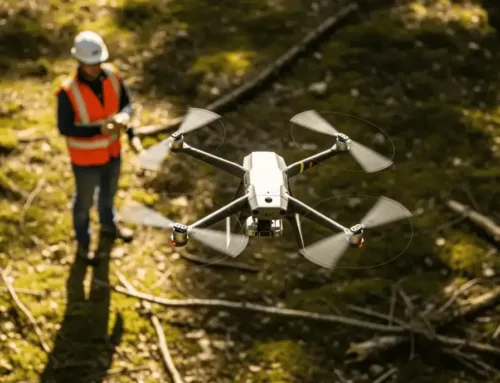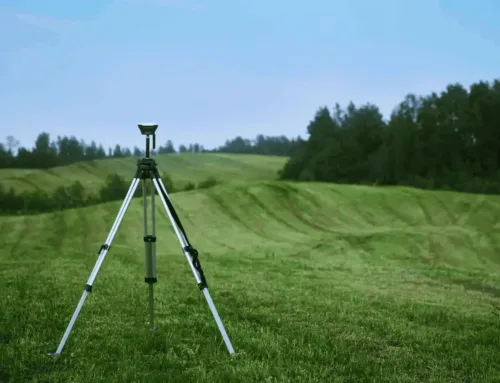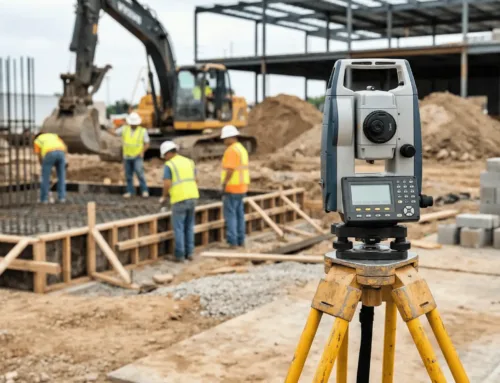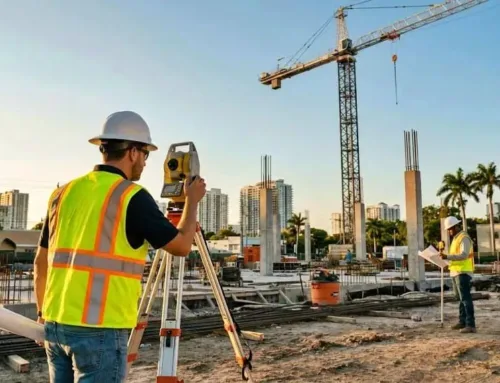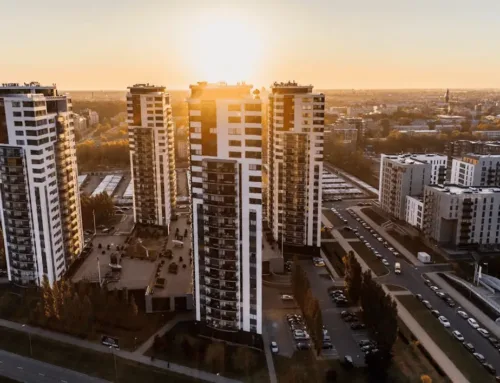Are you looking for reliable and comprehensive land surveying services in Virginia? Look no further! At Millman National Land Services, we provide top-notch surveying solutions tailored to meet the needs of homeowners, real estate professionals, developers, and public agencies. Our team of experienced surveyors is dedicated to delivering accurate and timely results, ensuring that your land development and planning decisions are made with confidence.
What to Look for in a Virginia Surveyor
Choosing the right surveyor for your project is crucial. You want a team that not only possesses the technical expertise but also values customer service and integrity. Here are a few key aspects to consider:
- Licensing and Certification (Virginia Department of Professional and Occupational Regulation): Ensure that the surveyor is licensed to practice in Virginia and holds certifications relevant to surveying.
- Experience: Look for a surveyor with extensive experience in various types of land surveys and a proven track record of success.
- Technology (National Society of Professional Surveyors (NSPS)): A good surveyor uses the latest technology to provide accurate and efficient results.
- Professionalism and Reliability: Timeliness and professionalism in communication and service delivery are essential traits.
- Client Testimonials: Check reviews and testimonials from previous clients to gauge the surveyor’s reputation and service quality.
How Much Does a Virginia Surveyor Cost?
The cost of land surveying services in Virginia can vary widely depending on the type of survey required and the complexity of the property. Here are some common factors that influence cost:
- Size and Shape of the Property: Larger or irregularly shaped properties require more time and resources to survey.
- Terrain and Accessibility: Difficult terrain or hard-to-access areas can increase survey costs.
- Type of Survey: Different surveys, such as boundary surveys, topographic surveys (American Land Title Association (ALTA)) or site planning surveys, have different costs associated with them.
- Previous Survey Records: Availability of previous surveys can reduce the scope of work and cost.
Related Blog: Who Pays for Surveyors When Buying a Property
For a detailed quote tailored to your specific needs, contact us directly at Millman National Land Services.
What Do Virginia Surveyors Do?
Virginia surveyors play a critical role in the real estate and construction sectors. Here are the key functions they perform:
- Boundary Surveys: Determining property lines and defining true property corners.
- Topographical Surveys: Mapping the elevation of points on a property and preparing a topographic map.
- Construction Staking: Helping contractors interpret construction plans on the ground.
- ALTA/NSPS Land Title Surveys: Providing a comprehensive survey that meets the requirements for title insurance purposes (ALTA).
- Flood Risk Surveys: Assessing properties for flood risks and aiding in the appropriate certifications.
Why Choose Millman National Land Services?
At Millman National Land Services, we stand out for our commitment to excellence and client satisfaction. Here’s why you should choose us for your surveying needs in Virginia:
- Expertise: Our team is comprised of skilled professionals with decades of combined experience.
- Precision: We utilize state-of-the-art technology (NSPS) to deliver precise and reliable surveys.
- Customer-Centric: We prioritize your needs and maintain clear, consistent communication throughout the survey process.
- Speed and Efficiency: We understand the value of your time and strive to complete projects efficiently without compromising quality.
Frequently Asked Questions
1. How long does a land survey take?
The duration of a land survey can vary significantly depending on several factors. For straightforward projects, such as small residential boundary surveys, the process might take a few days. However, larger or more complex surveys involving topographical details or multiple properties can take weeks. The specific time frame also depends on the surveyor’s current workload and the speed at which any necessary permits are obtained. At Millman National Land Services, we aim to complete all surveys as efficiently as possible without compromising accuracy.
2. Do I need a survey to build a fence?
In Virginia, it’s highly recommended to have a boundary survey conducted before erecting a fence. This ensures that the fence is built within your property lines and helps avoid disputes with neighbors over boundary issues. A precise survey can also provide legal protection by verifying that your fence complies with local zoning laws and regulations.
3. What is the difference between a boundary survey and a topographic survey?
A boundary survey is primarily focused on determining where your property lines are and defining the corners of the parcel. This type of survey is crucial for confirming land ownership, resolving disputes, and planning any developments on the land. On the other hand, a topographic survey measures the elevation and relief of the land, providing detailed information about the terrain’s features. This survey is essential for any construction or development projects as it helps in planning drainage, landscaping, and building layouts.
4. Can a land survey help with resolving property disputes?
Yes, a land survey can be an invaluable tool in resolving property disputes. By clearly marking the boundaries of a property, it provides authoritative and legally binding information that can settle disagreements over where one property ends and another begins. At Millman National Land Services, our surveys are conducted with precision and can be used as evidence in legal proceedings if necessary.
5. Are land surveys required for property sales?
While not always legally required, obtaining a land survey before selling property is strongly advised. A current survey can provide potential buyers with confidence in the property’s boundaries and any encumbrances that may exist. This can facilitate a smoother transaction by eliminating uncertainties and potential disputes.
6. How often should I get my property surveyed?
The frequency with which you should have your property surveyed depends on several factors, including changes to adjacent properties, natural events that could shift land, and development plans. As a rule of thumb, it’s wise to consider a new survey if you’re planning significant changes to your land or if there has been substantial construction activity in your area.
7. What are the legal implications of a land survey?
A land survey can have significant legal implications, serving as a definitive record of a property’s boundaries and features. It can be used in legal settings to assert rights over a property, resolve disputes, and ensure compliance with zoning and building codes. A survey conducted by a licensed professional like those at Millman National Land Services is a legal document recognized by courts, municipal bodies, and real estate professionals.
8. Can I use an old survey, or do I need a new one?
Using an old survey can be risky if there have been significant changes to your property or the surrounding area. New surveys are recommended to reflect any changes accurately and to ensure that all data is up-to-date. This is particularly important for major financial or legal decisions related to the property.
9. What should I provide to the surveyor before they start?
Providing your surveyor with as much information as possible can facilitate a smooth surveying process. This includes any previous surveys, deeds, or legal documents related to the property. Access details and any specific concerns or areas you want the survey to focus on should also be communicated.
10. How do I know if a surveyor is fully licensed?
To ensure your surveyor is fully licensed, ask to see their licensing credentials, which should be issued by the state of Virginia. You can also verify their status through the Virginia Department of Professional and Occupational Regulation, which maintains records of licensed professionals.
11. What happens if a survey shows encroachments on my property?
If a survey reveals encroachments on your property, such as a neighbor’s fence or building extending onto your land, legal steps should be taken to resolve the issue. This might involve negotiating with the neighbor or seeking legal remedies to enforce property rights.
12. Can a surveyor tell me where I can build on my property?
While surveyors can identify the physical boundaries and features of your property, determining where you can build also involves local zoning laws and building regulations. However, a surveyor can assist in providing the necessary information to local planning departments to help you understand your building limits.
Related Blog: Everything About Zoning Variance and Change


